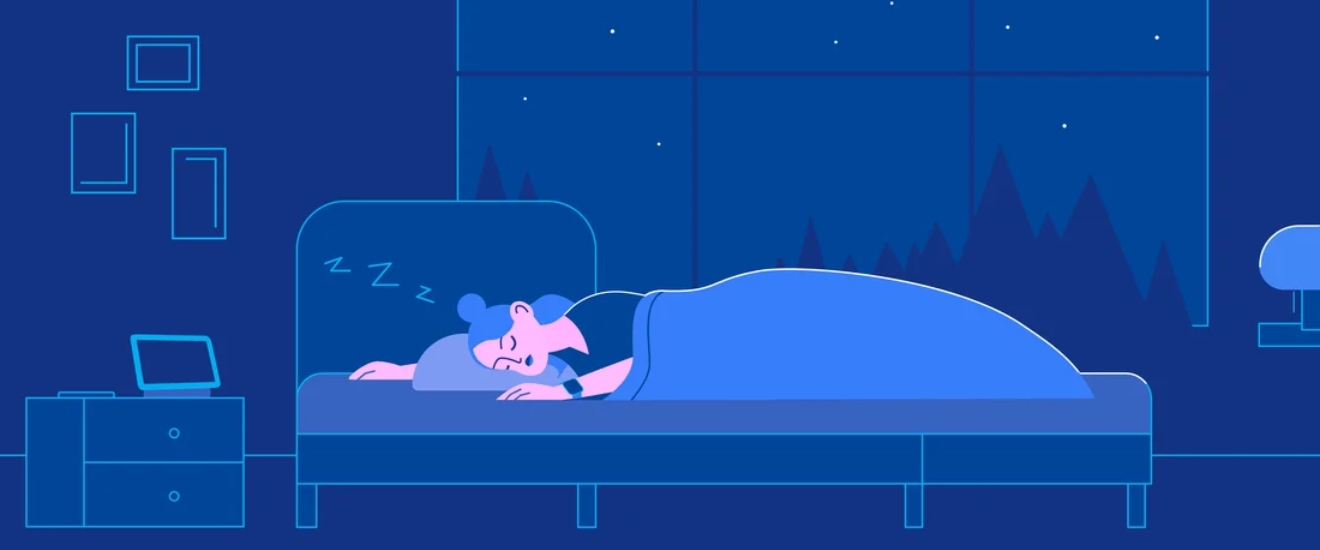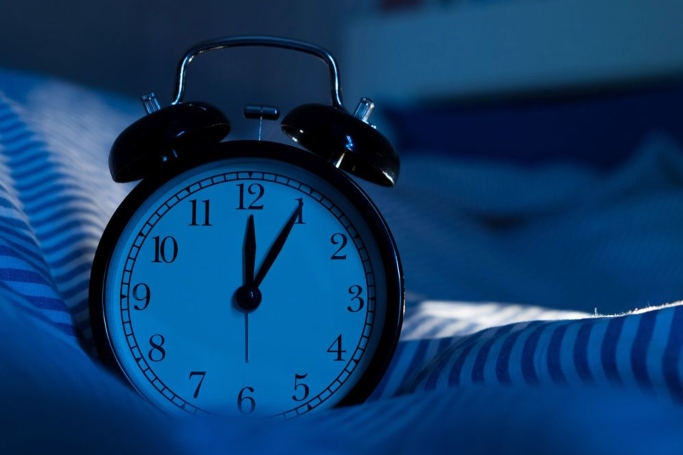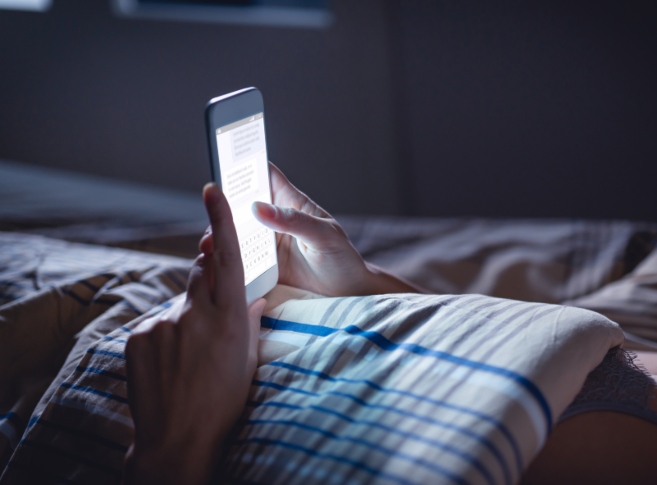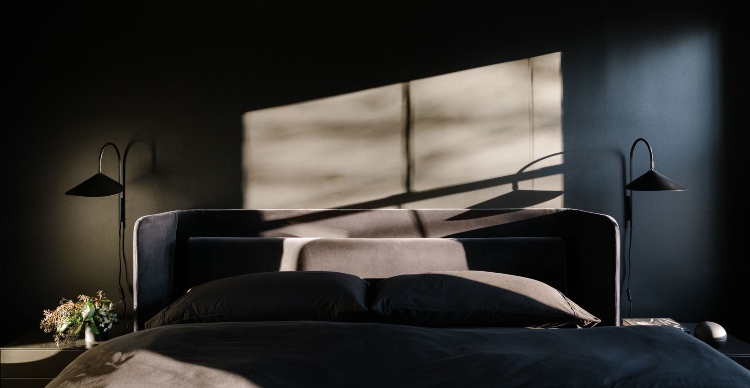Sweeter Dreams with a Bedtime Routine

By Brooke Girse
Sleep hygiene for a better night's sleep.
Did you know that the average person spends one third of their lifetime asleep? That is, if they are one of the lucky people who do get an average of 8 hours of sleep a night, but not everyone is so lucky. Sleep is so important for our overall well-being. It’s good for our immune system, our cognitive function, and handling any stress or anxiety that we face throughout the day, but ironically when we are overly stressed and anxious it can be hard to fall asleep at night. There have been many studies done on how to get a great night's sleep and most of those studies have found that maintaining a regular sleep routine is extremely beneficial for getting some quality zzz’s, but everyone is different. The trick is finding your own personal bedtime routine. Here are a few tips on how to find a bedtime routine that is best suited for you.
Stick to a sleep schedule
One of the most important things you can do for a bedtime routine is to stick to a sleep schedule. Making sure you go to bed at the same time each night and getting up at the same time every morning will make it easier to fall asleep at night and get out of bed in the morning. Just make sure to get as close to 8 hours as you can. Once your body gets used to going to bed at the same time every night your body will start releasing melatonin, a hormone known to help us fall asleep. You will notice once you’re on a regular schedule that as soon as your bedtime is up it will be difficult to keep your eyes open. When you wake up at the same time every morning, not only will you forget about the snooze button, but you may even start waking up before your alarm goes off. You will find you’re feeling more rested when you wake up and you’ll have more energy throughout the day. It might not be possible to go to sleep at the exact same time every night. Life happens, and it might interrupt your bedtime, but the most important thing is to make sure you are getting up at the same time every morning. Yes, even on the weekends. Getting up at the same time regardless of when you went to bed the night before will make it easier to get back on that sleep schedule the next night.
Turn off your electronics
All of our electronics that we use everyday emit a “blue light” that studies have found to affect a person's ability to fall asleep at night. Remember the melatonin I mentioned earlier? This blue light puts off the body's ability to produce that helpful sleep hormone, making it harder for us to fall asleep. Our bodies have an internal clock known as the circadian rhythm, this helps to regulate our awake and asleep times. When we are exposed to natural light our body's circadian rhythm keeps us awake and alert throughout the day, but  when the sun goes down and we are exposed to more artificial light it really confuses our internal clock. When we dim the lights, turn off our electronics and allow our circadian rhythm to do its job, it’s much easier for us to fall asleep and stay asleep. Some studies even suggest turning off those blue light emitters up to two hours before bedtime. So, turn off the television, stop scrolling through social media, and turn off the laptops or tablets, and find something else to do at the end of your day to help you detox from the blue light and electronics. Instead, you might take a hot bath or shower, read a book, the physical copy of course, or listen to an audiobook, listen to a podcast, do some bedtime stretches or a yoga workout, meditate or listen to one of the many sleep apps available. Of course, you still have to use one of your electronics to do some of these things, but as long as you’re not staring at the screen for long periods of time it shouldn’t affect your sleep too much. Make a routine of turning off the TV, reading your book, doing some stretches and turning off the light a few minutes before the time you would like to be asleep. If you find that you are having a hard time falling asleep after about 15 to 20 minutes, get up. I know it sounds counterintuitive, but studies have found that laying in bed for long periods of time can be frustrating and only makes it harder to go to sleep. Just get up, keep the lights dim, resist the urge to scroll on your phone and try doing a calming activity, like reading a book, until you are feeling sleepy, then get back into bed and try again.
when the sun goes down and we are exposed to more artificial light it really confuses our internal clock. When we dim the lights, turn off our electronics and allow our circadian rhythm to do its job, it’s much easier for us to fall asleep and stay asleep. Some studies even suggest turning off those blue light emitters up to two hours before bedtime. So, turn off the television, stop scrolling through social media, and turn off the laptops or tablets, and find something else to do at the end of your day to help you detox from the blue light and electronics. Instead, you might take a hot bath or shower, read a book, the physical copy of course, or listen to an audiobook, listen to a podcast, do some bedtime stretches or a yoga workout, meditate or listen to one of the many sleep apps available. Of course, you still have to use one of your electronics to do some of these things, but as long as you’re not staring at the screen for long periods of time it shouldn’t affect your sleep too much. Make a routine of turning off the TV, reading your book, doing some stretches and turning off the light a few minutes before the time you would like to be asleep. If you find that you are having a hard time falling asleep after about 15 to 20 minutes, get up. I know it sounds counterintuitive, but studies have found that laying in bed for long periods of time can be frustrating and only makes it harder to go to sleep. Just get up, keep the lights dim, resist the urge to scroll on your phone and try doing a calming activity, like reading a book, until you are feeling sleepy, then get back into bed and try again.
Dinner time matters
Try not to eat dinner too close to bedtime and try not to do any late-night snacking. Research has found that going to bed with a full stomach can really disrupt your quality of sleep. It makes it hard to fall asleep and stay asleep throughout the night. It is also known to give you some really strange dreams. Just as it is beneficial to keep a set bedtime schedule, it could also be helpful to have a set dinner time to make sure you’re not eating too late each night.
Creating a good sleep environment
The way your bedroom is set up matters when it comes to getting a good night's sleep. As mentioned before, the more we are exposed to artificial light the more confusing it is for our internal clock, so having a dark bedroom is very beneficial. If you do need some light, make sure it is dim enough that it doesn’t disrupt your sleep. If you are a light sleeper or noise might be an issue, you can use a white noise maker to help drown out any noise that might be keeping you awake or waking you in the middle of the night. The temperature of your room can also make a big difference. Some studies have found that a cooler bedroom temperature can help improve a persons’ sleep. Most sleep experts suggest keeping your room between 60 and 67 degrees, but everyone is different. You can experiment and find the perfect temperature for you.
As you can see, there are so many options for a bedtime routine. Do you know your best bedtime routine? If not, try different things until you find one that works for you. You don’t have to be perfect, and it may not be too easy to stick to a routine every single night, so be flexible, and don’t be too hard on yourself. Stick as close to your routine as possible and try to do that every night. Try it for a week and see how much better you feel. Start tonight! Start planning your routine right now, and if you’re reading this in bed, turn off your electronics, read a book, and get some sleep! Sweet dreams…
Oh, and just for fun, I wanted to add some interesting facts about sleep I found while I was doing my research:
- Not everyone dreams in color. Have you noticed if you do?
- The moon can have an effect on your sleep. The closer it is to a full moon, the harder it is to fall asleep.
- Exercising during the day can help you sleep at night.
- Genetics can have an effect on how you sleep.
- According to NASA, the perfect nap time is 26 minutes.
- It’s impossible to sneeze while you are sleeping.
- And finally, a person is a tiny bit taller when they wake up in the morning then when they went to bed but thanks to gravity, we shrink down to our normal size during the day.

References:
https://sleepdoctor.com/sleep-hygiene/bedtime-routine/
https://www.headspace.com/articles/sleep-health-2-consistent-wake-up-time-sleeps-surprising-mvp#
https://www.karvonens.com/blog/crazy-sleep-facts#
Photos:
https://blog.google/products/google-nest/true-or-false-sleep-myths-world-sleep-day/
https://www.gulftoday.ae/lifestyle/2021/03/22/5-reasons-to-go-device-free-one-day-a-week
https://www.elledecor.com/design-decorate/color/g30647039/dark-bedrooms/
https://www.pinterest.com/pin/783907878890123473/
